
DAHAL: Sorry, not sorry for my “minority privilege”
“I mean it would be easier for you to get it because you’re, like, not white, you know?” No, I don’t know.

“I mean it would be easier for you to get it because you’re, like, not white, you know?” No, I don’t know.

When I was seven, I hated what came out of my mouth. It was too thick. Laced with difference and heavy with otherness.
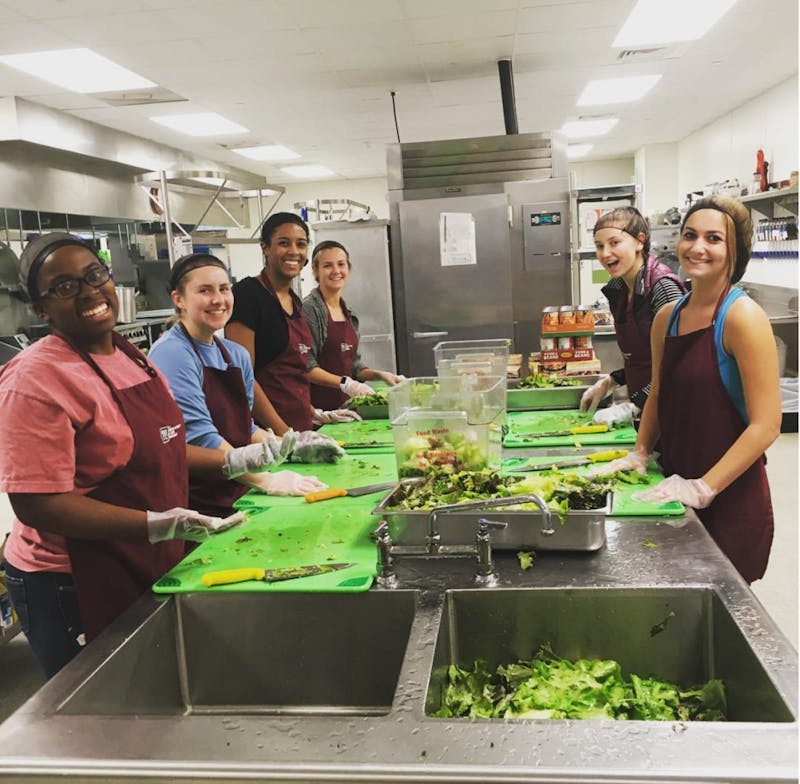
A small bumper sticker of a mason jar pinned on a bulletin board above the desk of Felicia Campa ‘16, reads “First we eat, then we do everything.” Campa, the Campus Kitchen Coodinator at Elon University (CKEU), said she believes the quote by M.F.K Fischer captures her commitment to addressing the issue of hunger in Alamance County.

It’s there in print, on the right-hand side of this page, in bold, white, Oswald: O-P-I-N-I-O-N-S.
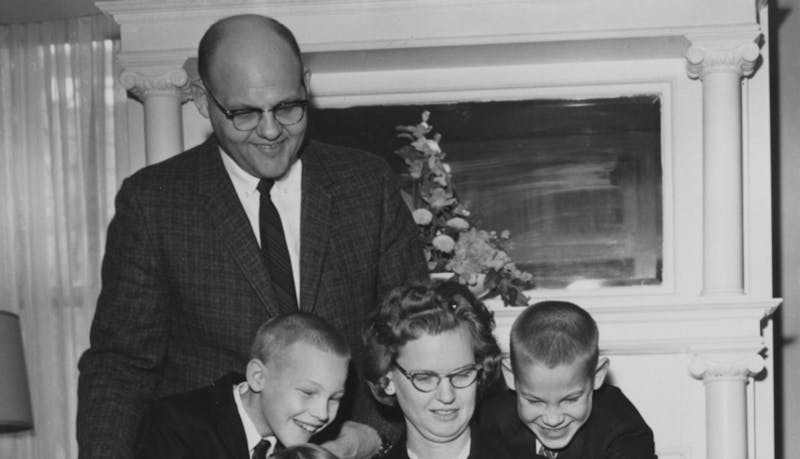
When Dr. Danieley was asked how he met his late wife, Verona Danieley at the 2014 Spring Convocation, his eyes lit.
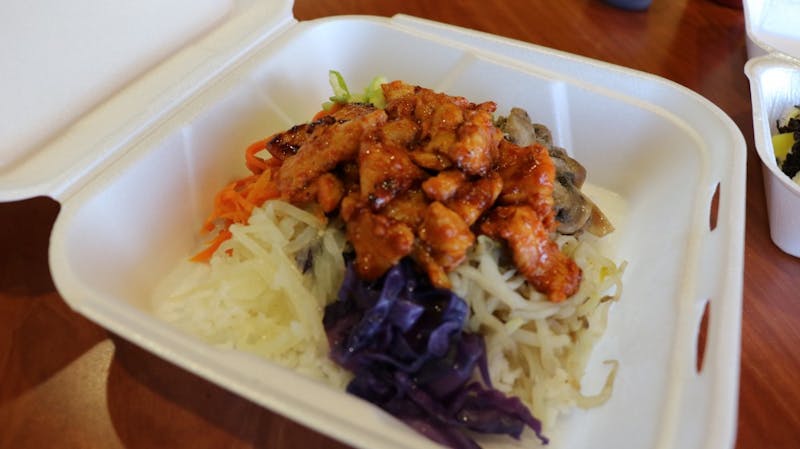
A framed picture of five Elon University students in familiar maroon caps and gowns sits at the payment counter at Mixed Rice, a restaurant wedged between NC Jelly Donuts and Painted Grape: Craft & Paint studio in Stans Plaza on South Church Street, Burlington. One of the students in the picture, Meredith Carey ’15, said she and her roommates gifted the frame to the restaurant to thank them for the sense of home they provided at every visit.

This month marks the deadline for staff members of national InterVarsity to leave the organization if they disagree with its recently reiterated theological stance against same-sex relationships, premarital sex, divorce and masturbation. The move by the national collegiate evangelical Christian ministry, which has a chapter on Elon University’s campus, created outcry in the LGBTQIA community after it was reported by Time Magazine in October. While the edict applies only to staff members — not student leaders or members — it has caused many students at Elon to try to distance itself from the national organization’s position and has prompted questions about the role of inclusivity and theological debate within the fellowship organization.
For students who had to struggle to get here or have struggled while here — including first-generation students — the graduation ceremony is more than just an orchestrated event, guaranteed to be given to you at the end of your four years. It’s something you and those who love you have fought incredibly hard for. It’s the culmination of more than four years of coursework. It’s a product of collective and unapologetic tenacity from you and those who have fought with you. So on the day of your undergraduate graduation, your invitation for family and friends is more than just an expectation.
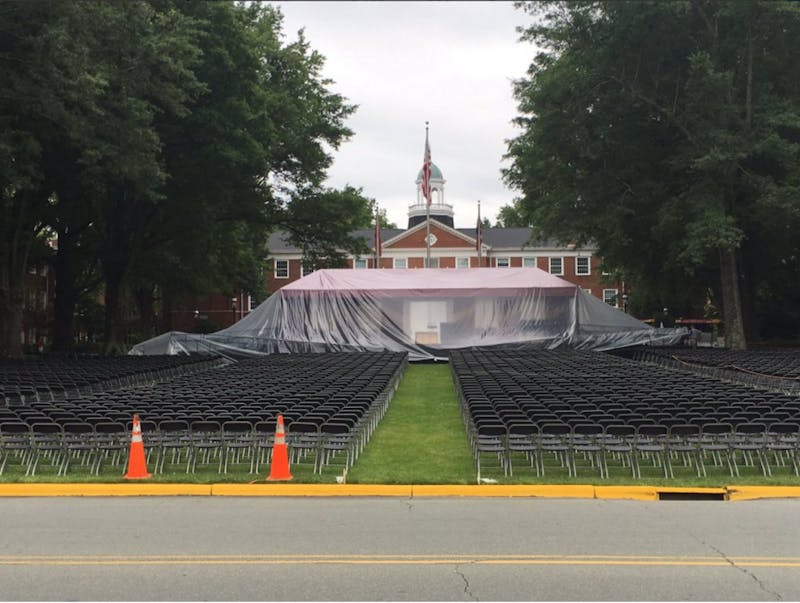
According to a letter from Jeffrey Clark, executive director of Cultural and Special Programs, commencement for December 2016 and Spring 2017 Elon University graduates will be held again in Scott Plaza —retreating from the original plan to adhere to university tradition and host commencement Under the Oaks. Commencement in May 2016 was held in Scott Plaza due to McEwen construction plans. "Returning Commencement to Under the Oaks this year would certainly require us to institute a ticket policy to limit the number of family/guests who can attend the outdoor ceremony," Clark added.
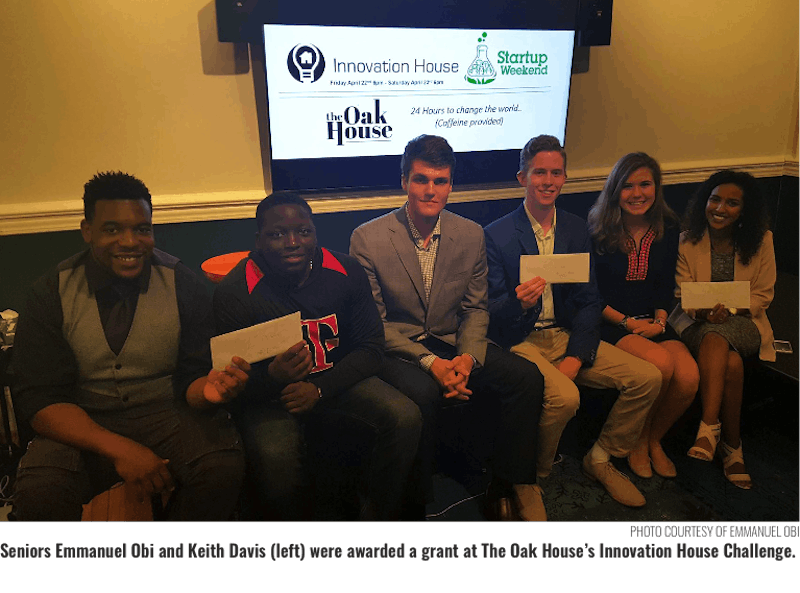
Be it through a 2-minute video released by a passerby or a less than 30-second clip from a police vehicle’s dash cam, recordings have played a vital role in fuelling conversation— and in some cases, division — in the public on issues surrounding the shootings of black men at the hands of police. A team of Elon students — led by seniors Emmanuel Obi and Keith Davis — are striving to change the narrative with a solution: “Our Watch,” a system for the distribution of these recordings.
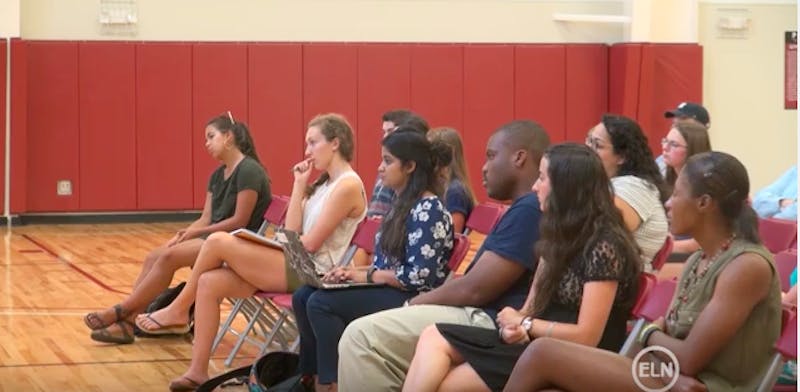
In front of an audience of around 20 students, faculty and staff, Ray Lin, Assistant Director of the Center for Race, Ethnicity & Diversity Education, sighed into his microphone. Reflecting on the shootings of black men by law enforcement officers over the summer of 2016 — including that of Alton Sterling, a 37-year-old black man who was shot and killed during a confrontation with two police officers in Baton Rouge, Louisiana — Lin urged the audience took look at the bigger picture. “These events are nothing new — they are symptoms of much larger, systemic problems,” he said.

Before Elon University students broke for Thanksgiving, they received an email from President Leo Lambert condemning several reports of homophobic slurs directed at members of the community. “It is understandable that this type of incident makes members of the LGBTQIA communities feel unsafe and unwelcome,” Lambert wrote in the email, “despite the good work of hundreds of people to support and value Elon’s LGBTQIA students and colleagues.” According to Leigh-Anne Royster, director of inclusive community well-being at Elon, the slurs Lambert referred to were directed at Elon students, and authorities have not been able to identify all perpetrators. All reported incidents were investigated by the police when possible and responded to through the Student Life Emergency Response system and/or the ongoing Bias and Harassment Response system.
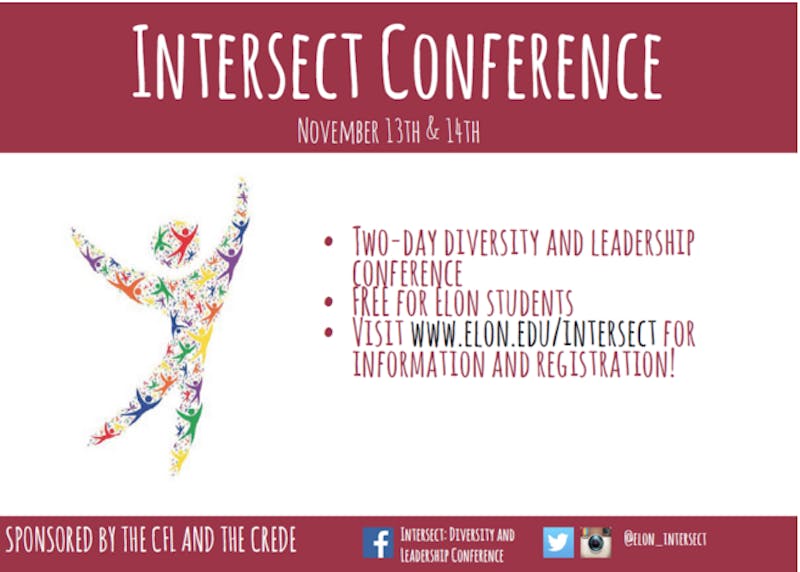
The Intersect Conference planning committee aims to fill rooms throughout Elon University’s Moseley Center Nov.
At last night’s “Fireside Chat,” a group of students, faculty and staff met in the Great Hall to discuss, dissect and acknowledge the 29 reports of bias, discrimination and harassment received by the Office Inclusive Climate and Well-Being in the Winter and Spring of 2015.
At last night’s “Fireside Chat,” community members met in the Great Hall to discuss, dissect and acknowledge the 29 reports of bias, discrimination and harassment received by the Office of Inclusive Community Well-Being in winter and spring 2015. The number 29 is alarming on any college campus — especially as it represents an increase of 12 in the number of reports from the fall. But to many students, especially students who have experienced incidents of racial bias, discrimination and harassment, the number seems far too low.
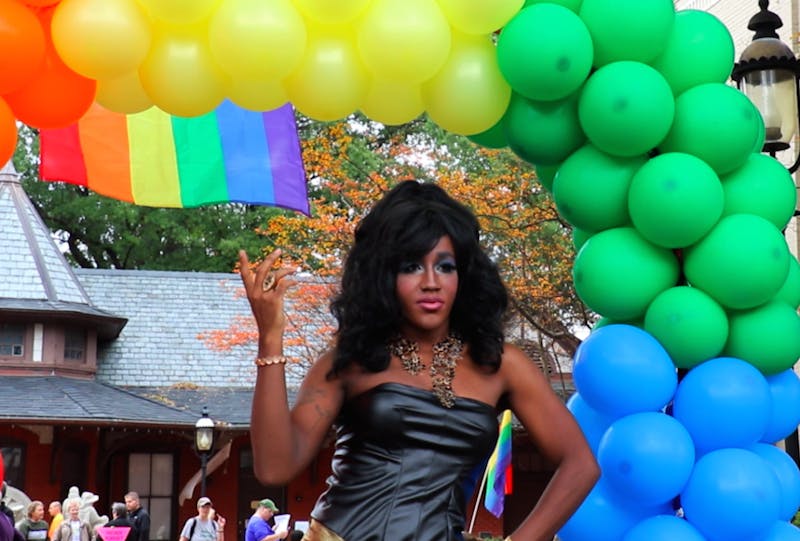
It may have drizzled over Alamance County on Saturday, but the more than 1,000 people gathered at the Historic Train Depot & Amphitheater paid little attention to the rain. What was on their minds, instead, were the rainbow flags and making history.
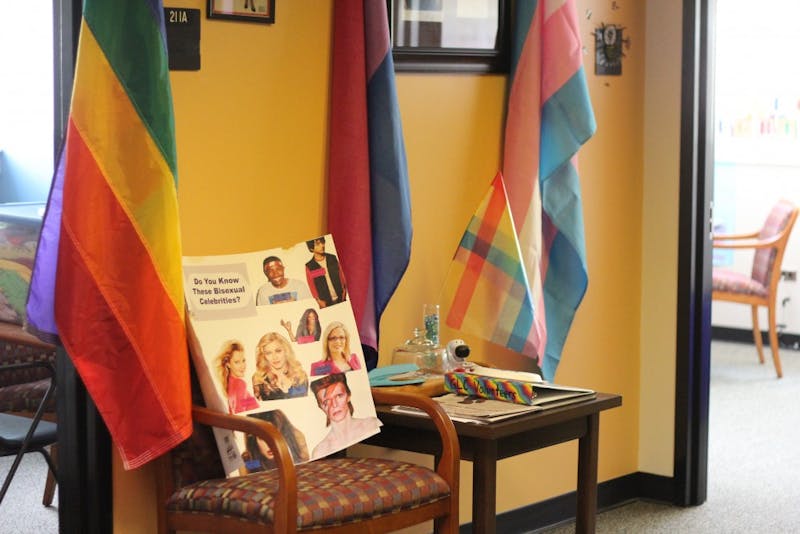
Earlier this week, Lynn Huber, associate professor of religious studies, received an email that read: “After this weekend, Alamance County will never be the same.” The email refers to Alamance County’s first gay pride festival, taking place Saturday, Oct.
As we’ve heard over and over again, there’s a fine line between cultural appropriation and cultural appreciation. But do we hear it enough?
Moseley tables, workshop sessions and social media posts coming from The Center for Leadership this week have all echoed the same message: Elon University students striving for change are recognized, valued and encouraged. Their weeklong celebration of leadership — LEADSTRONG Week, an event that previously had more of a global and national focus — is turning its spotlight strictly toward Elon this year with its theme, “Change Agents of Elon.” Purpose and schedule of events Running Sept.
Wedged between a segment on French music and billboard hits, junior Oly Zayac strives to spark conversations surrounding global issues one Sunday night at a time. The Focal Point, the WSOE program she helps lead, pursues one goal: addressing national and international issues.
More Articles by Leena Dahal »